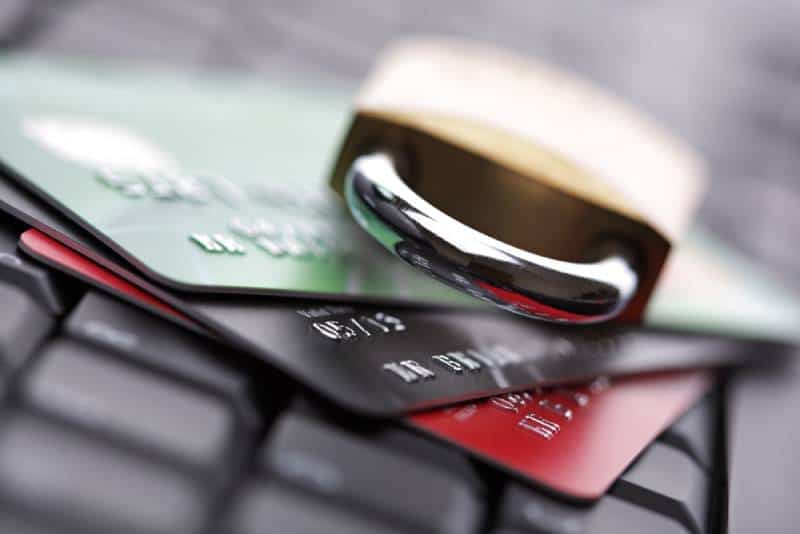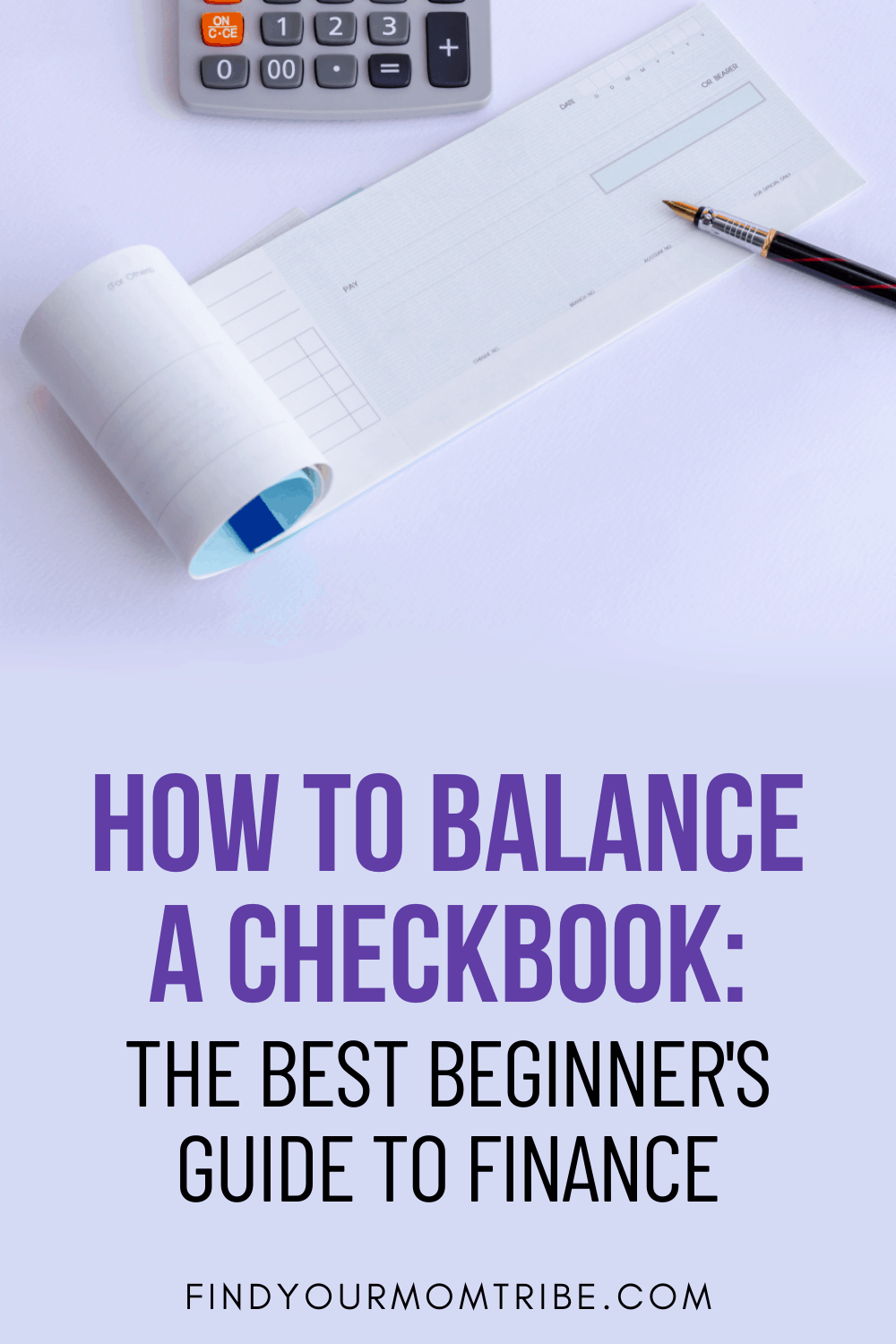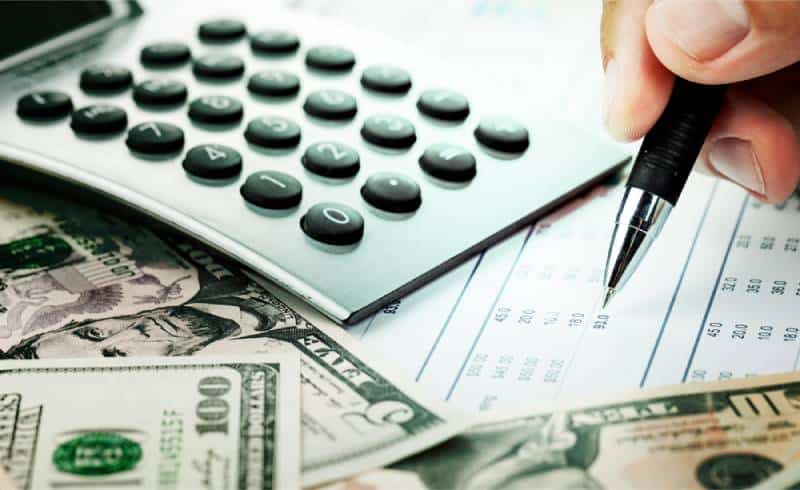The question on how to balance a checkbook ends up on everyone’s mind at one point or another, whether it’s on a daily, monthly, or even annual basis.
Keeping a clean and precise checkbook isn’t something overly difficult, it’s just basic math, albeit with somewhat higher numbers than third grade of primary school.
It’s mostly just a matter of dedication and meticulousness, much like how anything related to budgeting usually is.
That, and having a really good system in place, since – let’s face it – we’re in the 21st century, we don’t have to do everything by hand.
We have technology for that! And there are a number of apps that will help you keep your checking account in order and add or subtract all of the statements that you enter in your virtual checkbook register.
How To Start?
When looking at how to begin balancing your checkbook, you’ll want to go to the bank to issue the most recent bank statement of your available funds on your checking account.
That’s your starting total, your current balance, and the start to your journey on how to balance a checkbook.
After this starting account balance is confirmed, you can begin actively jotting down any withdrawals or deposits that you make.
Before you start

Track all unclaimed checks and transactions that are still pending in there as well – you don’t want them messing your math up before you even start, just because you overlooked them.
Also, always make sure to jot down what each of these transactions paid for to make a more streamlined system that makes it easier to find the right transaction at any given time in case of an emergency.
Track all transactions accurately
This means tracking any ATM withdrawals, direct deposits, any credit card and debit card purchases, bill payments, service charges, issued checks, bank fees, and the like.
Basically anything that will interfere with your register balance.
You can either do it whenever such a transaction occurs or at the end of the week if you keep your bank statements and receipts handy.
Do make sure to write the date as well as the amount in so you can find them easily if someone requires confirmation of a payment or a different issue arises.
I’d personally suggest doing it daily, but weekly is fine too (just make sure it’s not any less frequent than that).
This is the main goal in keeping a balanced checkbook.
You might make mistakes at times, but, if you’re diligent or using a budgeting app for your personal finance, it should be much easier since you won’t have to keep track of your new balance by yourself.
All you have to do is just input the amount added or subtracted and it will take care of the rest.
Now, if you’re paranoid like I am, you can keep a checkbook register of your own with you as an added dose of protection, but it’s not really necessary to do so.

By the end of the month, you should do a comparison of the ending balance on your checkbook register or budgeting app and the balance shown on your online banking app.
If they match, congratulations! You’ve achieved a balanced checkbook and can somewhat rest easy.
And, if not, well, re-check your math and see if you may have missed a transaction or if you’ve done the adding/subtracting wrong.
If everything is fine on your end, check with your bank to see about any other potential transactions that may not have come from you or that you may have missed.
This is why even penny counting is important. If it doesn’t match, something might just be off and you might be the target of potential fraud, which you and your bank can get to the bottom of.
Now, even if your checkbook is finally balanced, it doesn’t mean you can rest easy. You still need to be diligent in your efforts of maintaining a balanced checkbook.
It will be an immense help in the long run and help you avoid a whole number of potential problems that may arise.
Why Is Balancing Your Checkbook Important?
Overdrafting and bounced checks
When looking at the importance of keeping your checkbook balance, the main reason is to not overdraft.
To overdraft means to try pulling more money out of a bank account than it already has, which causes checks to bounce.
Some banks do have protection against overdraft, giving you some extra to dip into just in case, though that usually comes with extra fees, so try avoiding dipping into that protection if you can help it.
Not to mention overdrafting normally leads to bounced checks, which will end up being an unpleasant experience for both you and the person trying to cash it (mostly for you, though).
Why is it that bad? Well, whenever a check bounces, both parties end up having to pay overdraft fees, usually going from $20-$40.
Money needlessly lost because you weren’t paying attention to the financial balance of your checking account.
That’s not the end of it though.
It can get worse as the person you wrote the check to can transfer their charges over to you or attempt to cash the check again because he thought there was a delay on the transaction, which leads to yet another set of fees to hit you.
Now, there are further penalties, namely your credit score is going to go down, meaning less chances of getting a loan in the future unless you get it back up – a slow and arduous process.
And the worst of all is the fact that you can even face prosecution for a bounced check that was assigned a sizable amount.
And that’s something you definitely want to avoid; the charges can be hefty and you can even look at potentially going to prison, depending on the severity.
Identity theft

Now, a bounced check isn’t the only threat. There’s another hidden threat of potential identity theft.
If your checkbook is not balanced or if you’re not comparing statements with your check register, some amounts may slip under your radar.
One way these identity thieves start going about taking over your account is by sending transactions for very low amounts – a couple of dollars that might go unnoticed if you don’t pay full attention to it.
If it does, they might start taking an actually relevant amount of money now that they know they were successful, which may end up leaving you penniless and in a lot of trouble based on their frequency.
Financial fraud
Identity thieves aren’t the only people who can commit financial fraud.
There are others who might dare to try to accuse you of not paying some fees, or claiming a check you issued to them was bounced.
If you keep your checkbook balanced and all your transactions clean, it shouldn’t be an issue to find the proof of your innocence in your recent transactions – something that becomes much harder the messier your personal finances are.
Rectifying mistakes
Another important reason to keep your checkbook balanced is to always be prepared to correct a potential mistake that your bank may make.
These won’t happen too often (nobody would trust banks if they did), but they do make mistakes on occasion.
Sometimes you might end up with less on your account than intended, sometimes with more.

But don’t get fooled – none of these will work to your benefit and you shouldn’t try to abuse it because the bank will catch up to it eventually.
No, your job is to spot these imbalances and get them cleared up with your bank as soon as possible to help keep yourself on track.
Helping you become more financially responsible
When you become conscious of how much you spend by having your numbers in front of you, something tends to click in your head and makes you more aware of just how much goes where.
More often than not, this leads to people realizing they’re overspending in areas they can easily cut down on.
That is making them more financially responsible than before as they watch where they put their money toward – oftentimes leading them to creating budgets and similar in an effort to save for future expenses.
How To Prevent Errors In Checking
While you may have learned how to balance a checkbook, it can be tricky to stay on the right path, given that it’s extra effort on top of everything else that you have to do in your day-to-day life.
Luckily, there are some things you can do to make life easier for yourself.
Use a budgeting app
Something I’ve mentioned earlier when explaining the actual steps to keeping your checkbook balanced.
A budgeting app will not only help you perform checkbook maintenance and make inputting transactions easier, but it’s also likely to do other things to aid your personal finance as well.
Things like tracking your set budget and warning you if you’re overspending or nearing the limit of your linked bank account.
It helps ease the mental burden of having to remember all those numbers manually (though do try to keep the phone charged!).
Use a debit card
Another easy way of making sure you never try pulling more out of your bank account than the existing balance on it is to simply use a debit card.
Debit cards usually don’t allow you to even make a transaction if you don’t have the available funds, and they’ll let you avoid any potential problems that might occur if you had issued a check that would bounce and cause needless overdraft fees.
Don’t under-budget
Under-budgeting is a mental trick people do to make themselves feel better at the end of the month.
The trick involves writing down a lower number on the existing balance of your check register to try and prevent themselves from spending too much and seeing that they still have money when the monthly bank statement comes in.

While it does work for that reason, it’s something you should avoid ever doing because it will mess with your math and ruin the whole purpose of keeping a balanced checkbook by showing you the completely wrong numbers.
If you’re keeping your checkbook balanced, you shouldn’t even worry about it in the first place, since you’ll have more than enough self-control to set enough of an amount aside in a savings account if you’re looking to save.
That’s the smarter thing to do anyway than trying to skew the numbers. The whole idea of under-budgeting was silly to me the moment I heard of it, honestly.
Be precise when recording transactions
Another thing I’ve mentioned before, but something that needs reaffirming: Always track every single transaction down to the penny.
Finances are something you have to be accurate about. Trust me, I should know.
The cleaner your books are, the less chances you have of getting tricked out of your money and the more chance you have of detecting an irregularity in your account balance.
This helps keep those pesky fraudsters away from your money and keep you financially safe and secure.
Keep a cash cushion in case of emergencies

This is an optional tip, but a beneficial one nonetheless.
It’s always nice to have a bunker fund in case things get really dire and you need a small cash injection to catch up to all of your bills and other payments.
This way you’ll prevent any potential overdraft charges in case of a potential slip up or a surprisingly excessive amount of spending for the month.
Just make sure it doesn’t happen too often, as even the bunker fund can run dry.
The Bottom Line
As you can see, maintaining a healthy and balanced checkbook grants you a lot of boons down the line, much like with any other aspect of personal finance.
It’s no less important than any of them, even though it’s just doing some basic math.
Trust me, when you have all these numbers out of your head and on paper / your budgeting app, life will become so much easier and you will have less things to worry about, relieving the overwhelming amount of stress modern life places on us.
Like this post? Please share or pin it for later. You can also stay in the loop and follow us on Facebook, Instagram and Pinterest.

This post contains affiliate links. Please see our full disclosure for more info.

